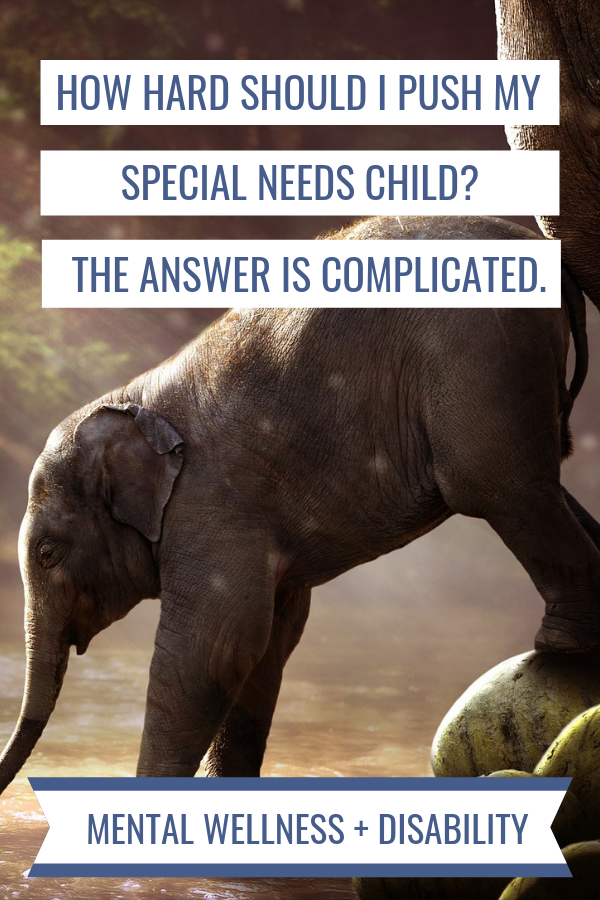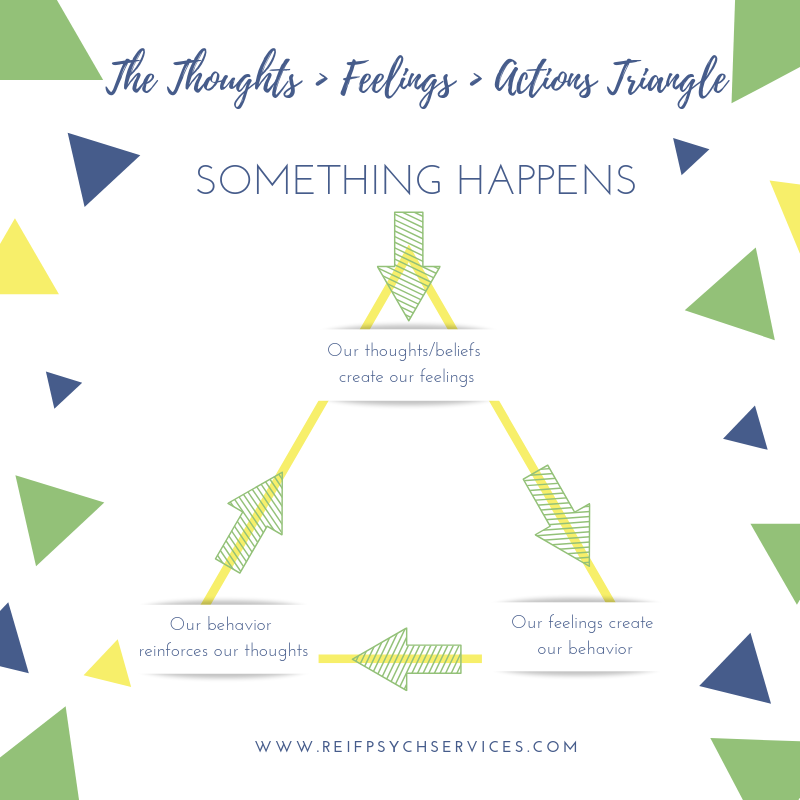Every January I hear something familiar from my counseling clients who have kids with Autism, Down syndrome, and other disabilities.
“I realize now that I expected too much. I’m worried that I pushed my special needs child too hard.”
Many of my clients look back on the December holidays and school break with regret. They see many ways that they hoped for too much and pushed too hard. They see lots of evidence that it backfired. They feel guilty for causing unnecessary struggle for their child with special needs.
Examples of ways that special needs parents may feel they expected too much include:
- Planning lengthy travel away from home
- Expecting typical behavior despite increased or decreased screen time
- Attending many holiday gatherings or religious services
- Inviting out-of-town family to stay in the home
- Allowing lengthy periods of unstructured time. Especially if there are siblings at home and it leads to fighting.
Then January comes. It’s a relief for kids and parents alike to return to the predictability of the school year. This leaves special needs parents feeling like complete failures.
“I’m his parent”, they think. “It should be a joy to spend more time together. I should have known that it would all be too much to handle. I was so caught up in creating a perfect holiday for everyone else that I made me and my child feel miserable.”
When parents feel this way, I remind them that their feelings aren’t wrong. But I also ask if it’s possible that they’re holding on to some inaccurate beliefs or unhelpful thoughts.

Because as a Cognitive Behavioral Therapist I know that our thoughts have the power to shape our feelings.
We tend to falsely believe that we feel the way we do because of the things that happen to us. We see that the circumstances we’re in cause our moods. But when we examine things more closely, we see that it’s our thoughts and beliefs that cause our feelings.
Here’s a real-life example
You’re driving to work. Someone cuts you off in traffic and you must slam on the brakes. You feel frustrated with the other driver and angrily honk the horn. You drive the rest of the way to work on alert for other bad drivers. When you see someone driving poorly, it only convinces you that no one knows how to drive. This makes you grouchier and more irritable. You arrive at work tense, on-alert, and ready to snap.
But what if, instead of believing that being cut off caused your bad mood, you stopped to question your thoughts?
Probably your thoughts were: “The driver who cut me off is an inconsiderate jerk. He doesn’t care who he hurts, he thinks he’s more important than anyone.” If those are your thoughts, then the negative feelings you had are understandable.
What if you instead recognized and challenged those thoughts as unhelpful? It might sound like:
“OK, that person wasn’t driving safely when he cut me off. Perhaps he is rushing home or to the hospital because of a family emergency. Or maybe he had one of those rough mornings that we’ve all had, and couldn’t get out the door. Now he’s late to work for a big presentation that really matters.”
What kinds of feelings might these thoughts elicit? Compassion. Gratitude for the things going right in your life. Neutrality (“It doesn’t affect me anymore, I’ll just go about my day.”)
Now ask yourself, which types of feelings are better for YOU to experience as you start your day? If given the choice, we’d all choose to feel compassionate, grateful, and neutral rather than feeling irritable and suspicious and put out.
The wonderful thing is that once you understand this relationship, it’s easy to see how you always have a choice. You can influence your thoughts to develop a more positive mood. You do this by recognizing and challenging the untrue and unhelpful thoughts that keep you stuck in negative moods.

Examining and challenging your thoughts when you fear you pushed your child with disabilities too hard
So what do I say when parents come to my office and want to discuss how hard to push their child? We discuss that confidence in your parenting choices is only possible when you’ve examined and challenged those thoughts that are keeping your stuck in guilt and regret.
It might mean resolving your ambivalence about a diagnostic label.
Maybe you don’t agree with your child’s diagnosis. Maybe because your child seems different from other kids with the same diagnosis.
Or could it be that you’re worried that the evaluator missed something in their testing. You’re seeing that the diagnosis doesn’t fully describe your child’s needs.
Perhaps, deep down, you have fears about what this diagnosis means for your child’s future.
If you think that the wrong label has been assigned to your child, it makes sense that you’ll resist following through on recommended strategies. The solution is to compile more information, seek out second opinions, and advocate for what you think was missed.
It might mean compromising with your spouse about your expectations for your child.
In many couples, one partner wants to provide structure and discipline. This partner wants to set high expectations for the child.
The other parent may feel less confident in doing this. This parent’s refrain is often “I only want my child to be happy.”
When partners disagree about expectations, it breeds more than anxiety. It can also lead to resentment between parents who each feel like their partner is letting them down.
It makes sense that if you believe your partner’s parenting style is wrong, you’re going to spend some time doubting them and some time doubting yourself. If this is what’s going on for you, it’s time to hash it out with your spouse and find points of agreement to build from.
It might mean facing your fears about your child’s future head on.
Finally answering the question that terrifies you. “What will happen to my child when I can’t care for them anymore?”
This is a difficult question to ask yourself. It’s one that most parents circle back to for years before finding resolution.
But it makes sense that you’ll never feel good exposing your child to new challenges if you believe that they’ll never be able to live independently outside of your home. It’s time to really consider what your child’s future might look like. That way you can have confidence that your parenting choices are helping them bridge the gap between where they are and where they could be.
If you’re like the parents who come to counseling with the January blues, it means questioning your expectations for the holidays.
It might sound like:
“Changes in routine are tough for my child. It’s understandable that they may struggle with so much time at home. I can do my best to structure our days at home so that my child knows what to expect from each day.”
Or
“It’s not my job to make the holidays perfect for everyone. I cannot control how my family members feel. It will help everyone to set limits on how much activity and travel we take part in. I may feel sad to miss out on some old traditions. But it will feel better to know that I didn’t exhaust my family trying to create a ‘perfect’ holiday.
Or
“It’s unreasonable to expect that I can know with precision my child’s future abilities. It’s understandable that some days I may push them to do more than they can. Just like some days I’ll probably not expect as much from them as they’re able to do. They don’t need to be goal-oriented every second of every day. What matters most is that I give my child the positive support they need. Then they’ll feel encouraged when they do want to step out of their comfort zone.”












